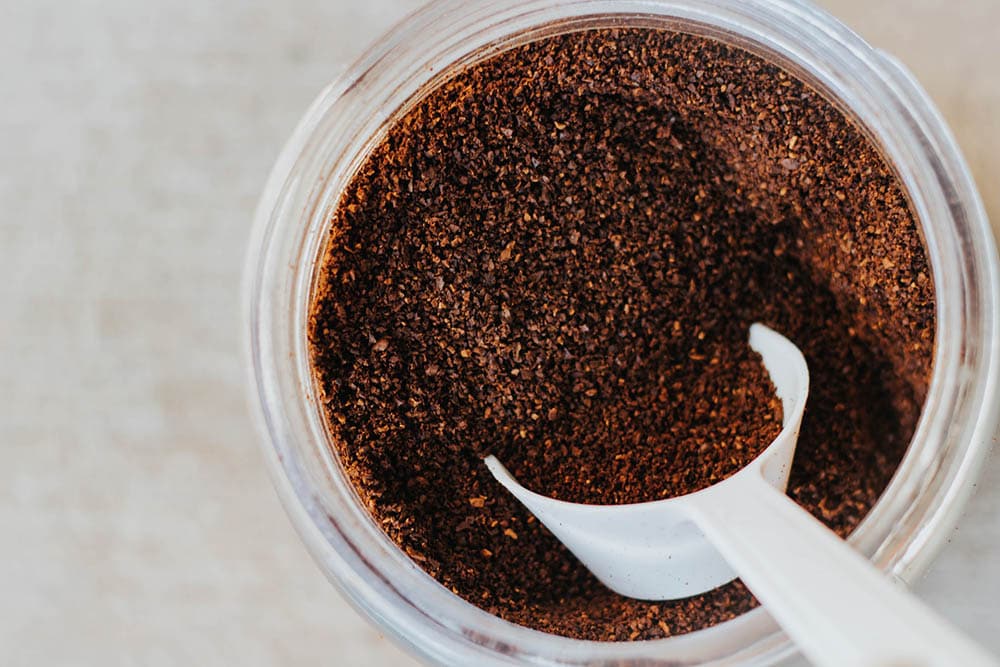
Coffee is consumed by billions each day, one of the most popular beverages in the world. Coffee is highly sought after for many reasons, including the world-famous caffeine boost most people get when drinking it. Caffeine is an addictive stimulant that’s found in coffee, as well as energy drinks, soda, and chocolate.
Having an energy boost is fine, but the caffeine in coffee can make people jittery and even anxious. Coffee jitters are an unpleasant side effect of drinking too much coffee, making it hard to focus on what you’re doing. If you’re currently experiencing coffee jitters and need to get rid of them, follow these tips and tricks to help kick the caffeine jolt:
Top 6 Ways to Get Rid of Coffee Jitters:
1. Drink Water

Water is a crucial part of our diets, but things like coffee can cause dehydration. If you are dehydrated and drink too much coffee, you can easily get a bad case of the coffee jitters. To help prevent dehydration or coffee jitters, make sure to drink plenty of water along with your coffee. You should aim to drink a full glass of water with your coffee to help prevent the dehydrating effects that caffeine has, in addition to how much water you drink a day.
Many people fall prey to dehydration even without coffee, so it’s important to drink water throughout the day consistently. There are many ways to stay on track with hydrating, from smartphone apps to water bottles that remind you to drink. If you’re a big coffee drinker and have been feeling extra jittery, start monitoring your water intake daily.
SEE ALSO: Does coffee dehydrate you?
2. Drink Herbal Tea

Sometimes, caffeine can cause or worsen symptoms of anxiety, which can make focusing on work or school feel impossible. Studies suggest that herbal teas like chamomile or lavender can help calm and alleviate stress and symptoms of anxiety. Even swapping one cup of coffee for matcha can help reduce coffee jitters and anxiety, which has a lower amount of caffeine. Drinking tea will also help hydrate you more, which can help with coffee jitters, as mentioned above.
Chamomile is widely known for its relaxation properties, helping thousands unwind and fall asleep or calm down from anxiety. Limited research found that chamomile contains apigenin, which is responsible for the calming effects. If you’re getting the coffee jitters, try a hot cup of chamomile tea to bring you back down. There are a few different types of chamomile, but any chamomile will do.
How to Make Chamomile Tea:
- Bring filtered water to a boil
- Place the chamomile tea bag in water for 3-5 minutes.
- Remove the teabag and sip on it slowly. For Iced Tea: Use two tea bags and chill, then serve over ice.
3. Get Outside or Use Breathing Techniques

Offices can feel dusty and stuffy, even with fans and ventilation systems running. If you’ve got the coffee jitters and you’re inside with no window nearby, try sitting outside for some fresh air. There’s nothing like some fresh air, especially when you’re feeling anxious or jittery. If you can’t take a quick break, have your lunch outside to help you relax. Being in a stuffy room can feel heavy on the lungs, which can be exacerbated by the caffeine in coffee.
If you can’t get outside, try going to a less crowded room and work on breathing slowly. It’s not as soothing as fresh air, but breathing techniques can help with anxiety and nervousness. There are hundreds of meditation and breathing control technique apps that can suit your preferences, which will help you calm your coffee jitters.
4. Try a Magnesium Supplement

If you drink a lot of coffee daily, consider taking a magnesium supplement to help reduce coffee jitters. A study recently found that coffee may impact your intestine’s ability to absorb magnesium, which can cause a deficiency. Oddly enough, coffee contains a little magnesium, but it’s not enough to give any definite health benefits.
Magnesium is a crucial nutrient in our diets responsible for muscle, bone, blood, and nerve health. Our bodies need to function properly, down to each cell. Coffee might interact with this much-needed mineral, so a supplement could help your overall health.
5. Exercise or Take a Walk

Exercise seems to be the answer to quite a few problems, including coffee jitters. While it may sound cliché, exercise can help reduce stress and stimulant effects simply by burning off the excess energy. Even walking or light hiking can help compared to being sedentary, so extreme cardio exercises aren’t needed.
Daily movement and exercise are essential to a healthy life, but it can also help reduce anxiety and caffeine jitters. Exercise can also help naturally cut down on coffee since it can raise your energy levels, giving you less of a reason to reach for that extra cup. If you find that exercise isn’t helping, try something less intense like yoga.
6. Eat Citrus Fruit

Try eating citrus fruit like oranges, grapefruit, or clementines, which are all rich in Vitamin C. You may lose some vitamins and minerals throughout the day with too much coffee consumption, which can lead to getting the shakes and cause other side effects. Eating some fresh citrus fruit can help restore some Vitamin C and other nutrients back into your system, which may reduce the jittery feeling.
Vitamin C is a hot topic in the supplement role since it’s often overused or underused by the average person. It’s crucial for many reasons, from your body’s ability to heal to tissue repair. If you drink a lot of coffee and don’t replenish your body with vitamins, you may have a deficiency. Eat an orange once a day while drinking coffee to ensure you aren’t losing too many nutrients.
Final Thoughts
Drinking coffee may have some health benefits, but getting the shakes is not usually a welcomed side effect. Coffee jitters can happen to anyone at any time, though the reason may not always be as obvious. From dehydration to vitamin deficiencies, getting the coffee jitters can be a distraction. If you have the coffee jitters and can’t seem to shake them, try one of our tips and tricks to shake them off for good.
It can also be a sign of possible health issues, so it’s important that they don’t happen often. If you do find that you are getting the coffee jitters a lot, try reducing your coffee intake and use the tips and tricks we suggested to stop them from happening. With some water and a few other tricks, you can stop and reduce the chance of getting a bad case of the coffee jitters.
RELATED READS:
- Too Much Caffeine? How to Recover From Coffee Stomach Problems
- Should You Drink Coffee When Sick? What You Need to Know
- 8 Unexpected Side Effects of Drinking Too Much Coffee
Featured Image: Ketut Subiyanto, Pexels














